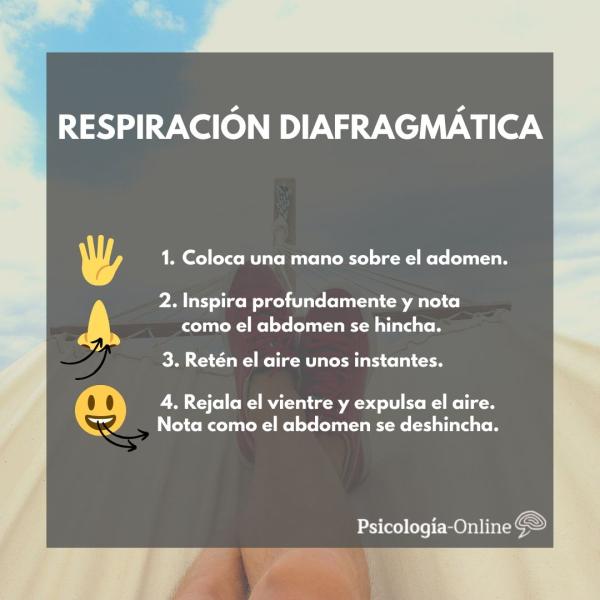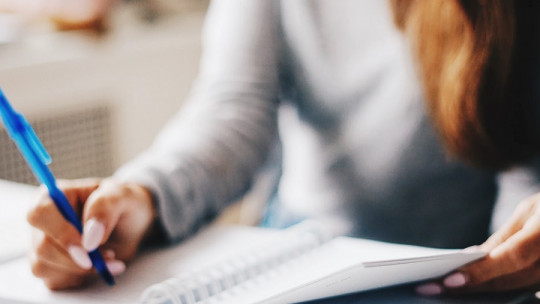Are you having a hard time concentrating? Do you try to pay attention when you do activities and you don’t succeed one hundred percent? It is not at all strange, since the complaint about lack of concentration is very common. In addition, it is a symptom of some psychological disorders, so it is advisable to explore each case and determine the cause.
In this PsychologyFor article, we explain the causes of lack of concentration so that you can know Why do you have trouble concentrating and what you can do to improve your concentration as well as techniques and exercises to work cognitive functions such as attention and memory.
Why do I have trouble concentrating?
The concentration is the capacity we have to focus our cognitive resources on a task or encouragement. We all have it to a greater or lesser extent, however, sometimes you may notice that it is difficult for you to concentrate and you forget things.
So if you want improve your physical and cognitive performance, ReConnect from Vitae is an innovative formula based on NADH (Co-E1), coenzyme Q10, serine and vitamin C that, thanks to the synergy of its components, will help you improve memory and concentration and fight the mental fatigue< It is a unique formula that will give you the energy necessary to carry out your tasks, whether they are exams, high workloads or other situations that require you to be very focused. In addition, its composition will help you stimulate your cognitive abilities and will contribute to improve stress management and anxiety.
What is the reason for the lack of concentration? This ability is greatly influenced by the degree of motivation we have in the task. It costs us much less to concentrate on something we like than on something we don’t like or interest. Let’s look at some factors that influence concentration:
- The lack of rest: When we are tired or we haven’t slept enough, our brain notices it and is not in the best conditions to focus resources on a task. Here you can see in detail how lack of sleep affects our brain.
- Work overload: In the same way that occurs with a lack of rest, overwork reduces the effectiveness of cognitive resources.
- Distractors: They can be noise, dependence on social networks (check notifications often), clutter, etc. In short, countless things that catch our attention and interrupt our concentration.
- Disorganization: When we have several pending tasks and we do not have an organization to carry them out, it is likely that thinking about the rest of the tasks prevents us from concentrating on the one in front of us. It is difficult to focus when there are many open issues.
- Recurring worries and thoughts: Any problem that worries us, whether economic, sentimental or work-related, can affect our concentration. The thoughts that burst into our minds distract us.
- Repetitive jobs: When work is repetitive, we use sustained attention, and this is not easy to maintain for a long time. Therefore, after a while in a monotonous task our ability to concentrate decreases.
- Motivation: As we have already mentioned, the motivation generated by the task is one of the keys to being able to concentrate. In the following article you will find more information about the concept and theories of motivation.
- Disorders: suffering from some disorders such as anxiety or depression influence our concentration and cognitive functions in general. Lack of concentration and memory is one of the symptoms of depression.
- Aging: The ability to pay attention and concentrate decreases with age.
All these factors can explain a decrease in the ability to concentrate considered normal. We consider that the lack of concentration is pathological when it influences different areas of our lives, when it remains for a period of time of more than 6 months or when it occurs as a consequence of a mental disorder (ADHD, Alzheimer’s, Dementia..).
How to improve lack of concentration
What to do if I can’t concentrate? If you want to improve your concentration, we recommend following the following guidelines:
- Get enough rest: Try to sleep 7 or 8 hours daily to keep your body and mind rested.
- Organize your workspace: Eliminate things that distract you and organize your table so that it looks uncluttered. Save what is not useful for completing the task, close social networks and put your phone on silent or vibrate if you expect important calls.
- Find motivation in what you do: If you have lost it over time, remember what you liked about your job or what benefits you obtained by doing it. You can also use the premark principle, that is, establish a pleasant activity that you can do after completing the task that is not so motivating for you. Here you can see different personal motivation techniques at work.
- Take care of one task at a time: Carrying two or more things at the same time decreases concentration on all of them. It has been proven that multitasking decreases our effectiveness and productivity. It is better to focus on one task and move on to the next when it is finished.
- Practice physical exercise: It provides many benefits, among them, it improves the ability to concentrate. If you are not very athletic, you can walk daily, ride a bicycle, practice yoga or take dance classes.
- Learn psychological techniques to reduce recurring thoughts that distract you.
Concentration exercises
If you want to improve concentration, you should know that, like other abilities, concentration can be stimulated. Try the following concentration exercises and you will notice a great improvement:
- Math: calculation improves concentration. By doing exercises such as simple operations or sudoku you will strengthen your concentration. There are applications and games to practice.
- Hobbies: word searches or finding differences allow you to improve concentration while having fun.
- Mindfulness, mindfulness or meditation. They work on attention and concentration. Here you can see how to learn to practice mindfulness.
- Descriptions: Look at an object or landscape for a few minutes and then try to describe it in detail.
- Count forward and backward: first one by one, then two by two, three by three..
- Read and write: They are two activities that improve concentration, attention, creativity, vocabulary, etc.
Concentration techniques to study
If you find it difficult to concentrate when studying, it is important to work on concentration in the following way:
- Read for 20 or 30 minutes A story unrelated to what you have to study will help you improve your concentration.
- If you find it difficult to concentrate to study, before starting look at an object for a few minutes of the room and analyze it in detail.
- Rest for 5 to 10 minutes After each hour of study it helps you focus on the next activity.
- Start the study session with the most difficult subject or what we like least, because that is when we have the best level of concentration, then an intermediate level and finally the subjects that are most pleasant or motivate you the most.
- Take deep breaths before the study session. As you do them, notice how the air enters and leaves your body.
If you want to know more about the subject, read the following article in which we explain how to improve your memory for studying.
This article is merely informative, at PsychologyFor we do not have the power to make a diagnosis or recommend a treatment. We invite you to go to a psychologist to treat your particular case.
If you want to read more articles similar to I have trouble concentrating: why and what to do we recommend that you enter our Cognitive Psychology category.
Bibliography
- Johnson, A., & Proctor, R.W. (2015). Attention: Theory and Practice. Madrid: Ramón Areces.
- Kahneman, D. (1997). Attention and effort








